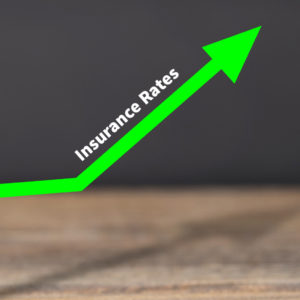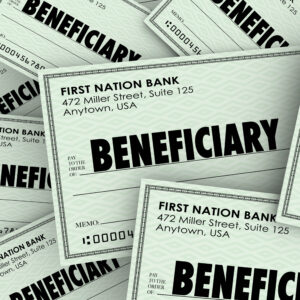Recreational Drone Insurance
 Recreational drones, sometimes called unmanned aircraft systems or unmanned aerial vehicles, are growing in popularity every year.
Recreational drones, sometimes called unmanned aircraft systems or unmanned aerial vehicles, are growing in popularity every year.
The Federal Aviation Administration (FAA) reports that more than 871,000 drones were registered as of January 2023. And the number continues to grow. That means a lot of new operators and a lot of new opportunities for fun — and accidents.
Owning a drone is easier than ever, as good-quality, low-cost models are becoming widely available. Plus, drones are fun. They can be used for racing, capturing a bird’s-eye view of everything from the beach to the treetops, or just for the enjoyment of flying.
But understanding the responsibilities of drone ownership is crucial to safe and enjoyable operation.
For example, did you know you could be sued if your drone damages someone else’s property or causes an injury?
Even recreational drone pilots need to know federal, state and local laws regarding personal aircraft operations. Some local ordinances include flight restrictions and laws to protect privacy and private property.
Before you start flying, you need to understand:
- Your legal and regulatory restrictions and obligations
- Insurance issues
- Best practices for operating a drone
Federal, state and local regulations
Flight laws aren’t only for professionals. Although recreational drone pilots are subject to fewer regulations than commercial drone pilots, there are several regulations that cover drones and drone operators. They involve:
- Registration requirements. All drones must be registered with the FAA, except those weighing .55 lbs. or less and flown exclusively under the Exception for Recreational Flyers. All registered drones must be properly labeled according to FAA instructions. Pilots must have a paper or digital copy of their registration certificate with them while they are operating their aircraft.
- Exceptions for recreational operations of unmanned aircraft. 49 USC Section 44809 permits an individual to operate a small unmanned aircraft without specific certification or operating authority from the FAA if they meet certain requirements. Among other requirements, the operator must:
- Use the drone exclusively for recreational purposes.
- Keep the drone within their line of sight or use a visual observer in the immediate vicinity whom they stay in direct communication with.
- Safety test requirements for drone operators. Check the FAA’s available test dates for recreational operator flight safety exams.
- Licensing requirements. If you fly your drone under Part 107, the FAA’s rule for Small Unmanned Aircraft Systems (UAS), you must obtain a remote pilot certificate from the FAA.
FAA regulations specify maximum altitude (400 feet), airspace restrictions and prohibited operations (for instance, flying over people, flying at night and interfering with manned aircraft).
The FAA also provides recreational flyers with useful tools like the B4UFLY mobile app. B4UFLY provides information on where it’s safe to fly, and websites where you can obtain authorization to fly in a controlled airspace, such as FAA DroneZone.
The B4UFLY app can help you identify local restricted airspace. However, you should check local ordinances before flying for additional guidance and prohibitions.
Complete FAA recreational flyer regulations and other information can be found on the FAA website.
Is your recreational drone insured?
If you’re a recreational drone operator, it’s important to know the various risks involved in flying a drone. Mishaps and accidents can happen with inexperienced and veteran drone pilots alike.
Drones can be involved in many types of incidents, including damage to personal property, injuries and violations of flight laws. In addition, drones with cameras can lead to invasion of privacy lawsuits. Verify your insurance coverage before you fly.
Many drone-related incidents are covered by your homeowners or renters property insurance coverage. For example, if your drone is damaged, it may be insured for its value minus your deductible.
There are some exceptions, however
For instance, if your drone falls and damages your car, the damage to your vehicle would not be insured by your homeowners policy. You would have to turn to your auto insurance policy. Your auto policy would respond if you have elected “comprehensive” or “other than collision” coverage. If you are injured by your own drone, your health insurance coverage may apply.
The liability clause in your homeowners, renters, condo or umbrella policy may cover lawsuits or damages if your drone injures someone or damages their property. Your liability policy may also cover lawsuits involving unintentional invasions of privacy if your drone accidentally takes a photo or video of someone or their property, or you’re accused of doing so.
You should also be aware of stringent federal and local laws regarding flying drones during emergencies or natural disasters, even when temporary flight restrictions are not in place. Penalties could include substantial fines, which might not be covered by your insurance.
You’ll also need coverage for theft. Verify that your insurance is adequate to cover the replacement cost if your drone is stolen. And save receipts for your drone and related equipment.
Because drone incidents can involve various losses and risks, it’s best to contact an insurance professional. The insurance professionals at Huff Insurance can explain the types of events that are covered, your deductibles and any policy limitations. Remember that your insurance needs may change if you purchase a larger or more advanced drone.
Your insurance agent or broker will ask specific questions about the type of drone you own and how you will use it.
These questions may include:
- How big is the drone and how much does it weigh?
- Who will be flying the drone, and do the operators live in your household?
- Will the drone include a camera or video camera? Will it be used to take photos?
- Is the drone registered?
- Where do you plan to fly the drone?
- Will you fly the drone on public property?
- Will the drone be used for competitive racing?
While coverage may vary, know that your homeowners policy probably won’t cover commercial or business use of the drone.
Do you use your drone for any type of business?
If you use your drone for any type of business purpose, then you need to make sure to get the appropriate business drone insurance policy.
Our team at Huff Insurance can help you get the right type of coverage for your drone.
Drone safety and best practices
Following safety best practices is key, even if you’re only flying for fun in your own backyard. The FAA lists these safety tips for new drone operators:
- Register your drone.
- Fly your drone at or below 400 feet.
- Keep your drone within your line of sight.
- Be aware of FAA airspace restrictions.
- Respect privacy.
- Never fly near other aircraft, especially around airports.
- Never fly over groups of people, public events or stadiums full of people.
- Never fly near emergencies, such as fires or hurricane recovery efforts.
- Never fly under the influence of drugs or alcohol.
Local flight clubs and community organizations can also provide guidance and safety education.
Resources for recreational drone safety education and information include:
- Know Before You Fly, an educational campaign by the Association for Uncrewed Vehicle Systems International and the Academy of Model Aeronautics in partnership with the FAA. The goal of the campaign is to educate recreational drone operators about safe and responsible operation of uncrewed aircrafts.
- The Academy of Model Aeronautics, a nonprofit organization that promotes the development of model aviation as a recognized sport and worthwhile recreation activity. It also provides educational resources including the AMA Flight School.
Keep your drone flying experience fun and safe, and protect yourself with solid insurance. Then you will truly enjoy the friendly skies.
Contact Huff Insurance
If you have any questions about your specifinc insurance coverage, please reach out to us at 410-647-1111. One of our seasoned and tenured insurance professionals will be happy to talk with you.





 We continue to get questions regarding insurance rates increasing. Instead of avoiding the question, we figured we’d address it.
We continue to get questions regarding insurance rates increasing. Instead of avoiding the question, we figured we’d address it.
 Juice jacking is a type of cyber attack that takes place when a user connects their device, such as a smartphone or laptop, to an unsecured charging station. The charging station is usually located in public places such as airports or coffee shops. It can be equipped with malicious software that can allow the hacker to gain access to personal information stored on the device. In some cases, the hacker can also install malware onto the device without the user’s knowledge.
Juice jacking is a type of cyber attack that takes place when a user connects their device, such as a smartphone or laptop, to an unsecured charging station. The charging station is usually located in public places such as airports or coffee shops. It can be equipped with malicious software that can allow the hacker to gain access to personal information stored on the device. In some cases, the hacker can also install malware onto the device without the user’s knowledge.

 Increase in theft crimes in recent weeks.
Increase in theft crimes in recent weeks.

 Having a current and properly executed will is an important part of estate planning. That having been said, wills need to go through the probate process, which can be time-consuming. Having your beneficiaries up to date can make the probate process less complicated.
Having a current and properly executed will is an important part of estate planning. That having been said, wills need to go through the probate process, which can be time-consuming. Having your beneficiaries up to date can make the probate process less complicated.